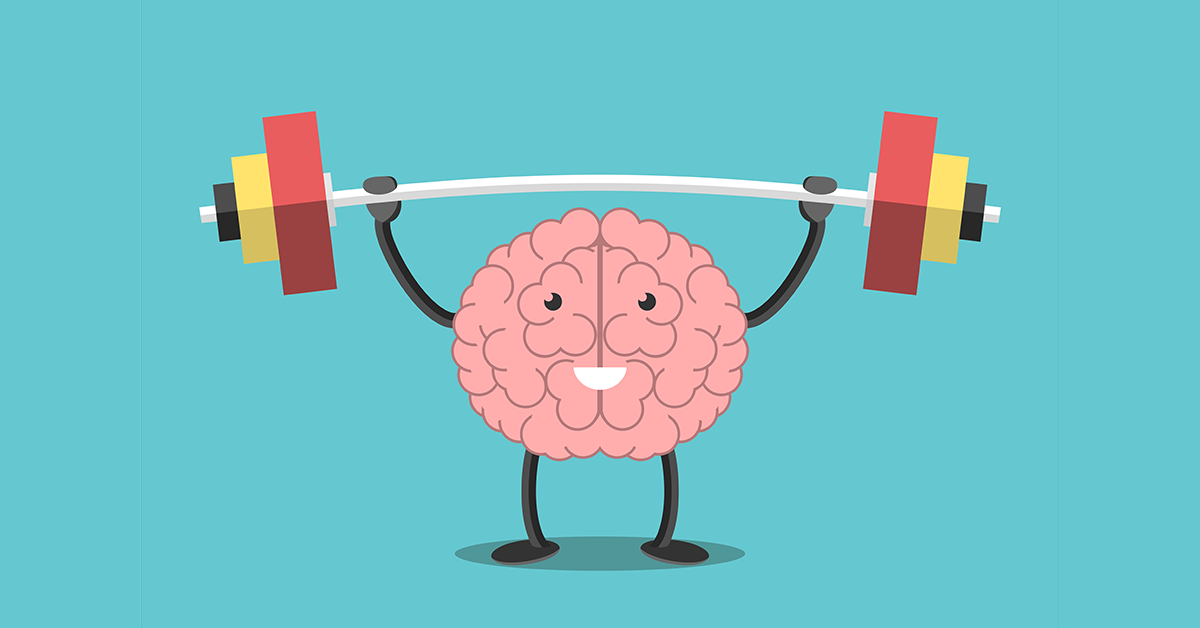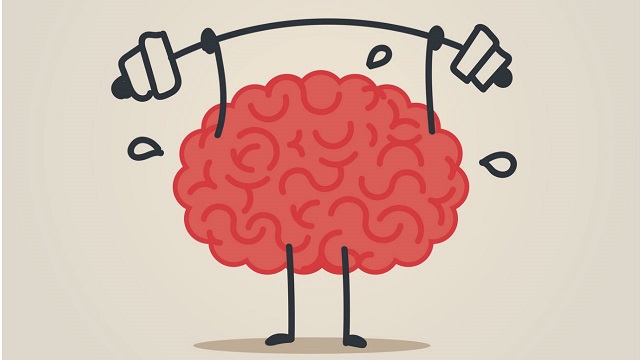

How to Protect Your Mental Health
There are days when simply scrolling through headlines feels like wading through emotional quicksand. One moment you’re reading about global crises, and the next you're processing personal stress—deadlines, family worries, or just that unshakable sense of unease that creeps in for no clear reason. If your nights have recently become restless, or your shoulders seem to carry more weight than usual, you’re not alone. In fact, according to data from the American Psychological Association, more than three-quarters of adults in the U.S. have reported symptoms of stress—things like sleep disruption, headaches, fatigue, or even feeling emotionally numb.
And that makes sense. We’re living in a time where unpredictability feels like the norm. When plans shift overnight and world events blur into personal anxieties, it’s easy to feel emotionally off-balance. Dr. Robyn Pashby, a clinical health psychologist, explains that stress often stems from the loss of control and predictability—two things we humans naturally crave. When that sense of stability disappears, so does our inner sense of calm.
But here’s something we often forget: even when we can’t control the outside world, we can learn to anchor ourselves from the inside. Mental health isn’t about eliminating discomfort—it’s about building the tools, rituals, and mindsets that help us navigate it. It’s about creating small daily moments of care and clarity that, over time, become a powerful source of emotional stability.
So, how do we begin to do that? How can we protect our mental health without completely withdrawing from the chaos around us? The answer doesn’t come in one sweeping fix—but rather in a series of thoughtful, consistent actions that you can begin practicing right now.
If anxiety has begun to feel overwhelming—if it’s affecting your ability to function or stripping you of your motivation—speaking with a mental health professional is not only helpful, it’s necessary. But for many, especially those just looking to regain balance in a turbulent world, there are grounding strategies you can use every day. The following tips and practices are built to do just that: strengthen your emotional core, calm your nervous system, and remind you that you are not powerless—you’re human.
Why Modern Life Feels So Mentally Draining
“Human beings crave structure and predictability,” explains Dr. Robyn Pashby, PhD, a licensed clinical health psychologist and founder of DC Health Psychology in Bethesda, Maryland. “Right now, what drives stress more than anything is the sheer unpredictability of things—the fear of danger, the loss of control, the uncertainty that surrounds us.” That unsettling sense of vulnerability? It's hitting everyone, whether we realize it or not.
Of course, we can't singlehandedly reshape the world or filter out every distressing headline. But what we can do is take real, deliberate steps to support our own mental well-being. Practicing small, effective habits that help you feel rooted, safe, and mentally equipped can make a world of difference—even when the world feels chaotic.
If your anxiety has reached a point where daily functioning is difficult—say, you’re unable to get out of bed or complete routine tasks—it may be time to speak with a mental health professional. However, for many, applying consistent coping strategies can significantly improve emotional resilience. Here’s how to get started.
Expert Strategies to Protect Your Mental Health
Prioritize Consistent, Restorative Sleep
Getting seven to nine hours of good-quality sleep per night is ideal for most adults. But when stress and anxiety build up, falling asleep—and staying asleep—can feel like a battle. Dr. Pashby points out that lack of sleep does more than make you groggy. It also lowers your emotional resilience, intensifies anxiety, and disrupts hormonal balances. For instance, chronic sleep deprivation can impair insulin sensitivity and increase your appetite, according to findings published in Nature and Science of Sleep.
To help you reclaim your nights and soothe your mind, consider adopting these practices:
-
Establish a calming bedtime wind-down routine. Shut down electronics, step away from the news, dim the lights, and try something relaxing—like stretching, a warm bath, or quiet music.
-
Stick to a set bedtime. Even if you're not feeling tired, don’t lie in bed tossing and turning. Get up, read a book (not your phone), and wait for your eyes to feel heavy. Avoid devices since the blue light they emit suppresses melatonin, your body’s natural sleep hormone.
-
Cut down on caffeine after mid-afternoon. Your body takes four to six hours to process just half of the caffeine you consume. That afternoon latte may still be buzzing in your system come bedtime.
-
Skip the nightcap. While alcohol can make you sleepy initially, it interferes with deep sleep cycles and can lead to multiple awakenings. Even one drink in the evening can disrupt rest, as noted by the National Institute on Alcohol Abuse and Alcoholism.
-
Soak up some early morning sunlight. Natural light helps regulate your circadian rhythm, which governs your sleep-wake patterns. Research has also linked morning sun exposure with better sleep quality and longer rest.
-
Wake up at the same time every day. Even if you had a rough night, resist the urge to sleep in or nap for long periods. Keeping your internal clock steady is key to long-term sleep improvement.
Preserve Your Daily Structure and Rituals
When life feels like it's spiraling out of control, your body tends to crank up production of cortisol and adrenaline—those famous stress hormones. And when those levels stay high for weeks or months, it can trigger serious consequences, including depression, heart disease, and weight gain.
One of the simplest ways to restore a sense of stability is by sticking to your typical schedule. Eating meals at regular times, waking up and going to bed consistently, or keeping up with small routines like dressing for work—even when working from home—can reinforce a sense of order. Dr. Pashby emphasizes that rhythm helps regulate your hormones and brings back a much-needed feeling of control.

Keep Moving, Even in Small Ways
Exercise is one of the most reliable tools for managing stress. Whether it's walking, stretching, dancing, or lifting weights, physical movement supports both your mental and physical resilience. The CDC recommends at least 150 minutes of moderate activity or 75 minutes of intense physical activity per week.
Better yet, take it outside. Time spent in nature has been shown to lower cortisol, soothe the nervous system, and increase feelings of peace. A short walk through a local park or a quiet moment in your garden can do wonders for your mental state.
Rework Negative Inner Dialogue
When you’re stressed, your mind often drifts into worst-case-scenario territory. Thoughts like “I can’t handle this” or “I’m losing control” might sneak in and take over. According to the APA, these negative mental scripts tend to reinforce emotional discomfort and skew your perception of reality.
To break the cycle, Dr. Pashby suggests a simple exercise: pause, take four or five slow, deep breaths, and then reframe your thought. For instance, replace “Everything is falling apart” with “This situation is really hard, but I’m doing my best to stay grounded and protect myself.”
You can also apply this practice when food-related stress arises. If you catch yourself thinking, “There’s no way I’ll stay on track being stuck at home,” ask yourself—what would I say to a close friend who said the same thing? That compassion-driven response can often help reshape your own perspective in a healthier direction.
Don’t Let Yourself Disconnect Emotionally
Avoiding others when you feel overwhelmed is natural—but not always helpful. Studies, including one from Clinical Psychological Science, show that social interaction—even a brief chat or text message—can reduce stress symptoms and improve mood.
If reaching out feels hard, consider shifting the focus away from yourself. Offer help to a neighbor, check in on an elderly friend, or volunteer for something small. Being useful not only reconnects you with others—it also gives you a stronger sense of purpose.
Recognize the Urge to Eat Emotionally
It’s tempting to reach for that tub of ice cream or bag of chips when stress peaks. But stress-eating is often a short-term distraction that leaves long-term emotional residue. Allison Rose, MHS—public health consultant and certified yoga instructor—notes that high-fat, high-sugar comfort foods don’t actually resolve the feelings that triggered the craving in the first place.
Before you snack impulsively, pause. Ask yourself: am I physically hungry, or am I just overwhelmed? If it’s the latter, consider calling a friend, taking a quick walk, doing a creative task, or simply sitting with your feelings for a moment. More often than not, that pause creates space for healthier choices.
31 Practical Tips to Nurture Your Mental Well-being
Sometimes, staying mentally healthy means weaving small, intentional habits into your daily life. These aren’t big overhauls—they’re simple actions that help center your mind, lift your mood, and ground your emotions. Here are 31 actionable ways to strengthen your mental wellness one moment at a time:
-
Keep a journal for gratitude and small wins. Each day, jot down three things you’re grateful for and three accomplishments you’re proud of—no matter how small. It builds perspective and emotional momentum.
-
Begin the day with a warm drink. Coffee is linked to lower depression rates. If caffeine isn’t your thing, try green tea or herbal blends that still give you a comforting morning ritual.
-
Plan something to look forward to. Even organizing a weekend picnic or a local getaway can boost your happiness in anticipation. The planning itself can uplift your spirits for weeks.
-
Lean into your strengths. Do something you’re good at—it builds self-confidence. Once you're in a positive groove, challenge yourself with a more difficult task.
-
Keep your room cool at night. Experts recommend 60–67°F (15–19°C) for ideal sleep. A cooler environment supports deeper, more restful sleep cycles.
-
Take the first step—even if it’s small. As Martin Luther King Jr. said, “You don't have to see the whole staircase, just take the first step.” Choose one action that moves you toward a better place.
-
Get creative. Try painting, writing, baking, or experimenting with a new DIY project. Creative expression has been shown to correlate with increased well-being.
-
Reach out to someone you care about. Whether it’s a message, call, or visit, meaningful connection nurtures both your heart and theirs.

-
Treat yourself to dark chocolate. A few squares now and then may boost focus and alertness thanks to flavonoids, caffeine, and theobromine.
-
Share your story. Maya Angelou once said, “There is no greater agony than bearing an untold story inside of you.” Expressing your experience—online or privately—can be liberating.
-
Appreciate the little joys already present. You don’t always need to add new things. Simply being mindful of what’s going well can help reframe your mindset.
-
Color to calm your mind. Grab a coloring book or printable with intricate designs. Twenty minutes of focused coloring can clear mental clutter.
-
Laugh out loud. Watch a comedy, swap stories with a funny friend, or explore a silly meme page. Laughter actually reduces physical tension and stress.
-
Take a tech break. Leave your phone behind for a few hours—or a full day. Disconnect to reconnect with what’s real and right in front of you.
-
Dance while you clean. Turn up your favorite song, move your body, and transform boring chores into a mood-boosting mini workout.
-
Yawn on purpose. Odd as it sounds, yawning cools your brain and improves focus. So, go ahead and let one out—it might help reset your headspace.
-
Soak in a warm bath. Add Epsom salts to ease tension and help replenish magnesium, which stress can quietly deplete from your body.

-
Write down what’s bothering you. Putting emotions on paper can offer perspective and lighten emotional burdens, even if no one else ever reads it.
-
Spend time with animals. Whether it's your pet, a friend’s dog, or volunteering at a shelter, animal interaction increases oxytocin and lowers cortisol.
-
Stay present with mindfulness. Thoreau said, “What lies within us...” is where the magic happens. Let yourself fully experience the now, without judgment.
-
Explore your own neighborhood. Try being a tourist where you live. You might be surprised by what you find—murals, nature trails, history, or new local gems.
-
Prepare for the week ahead. Whether it’s meal prep or planning outfits, a little organization can reduce morning chaos and give you a sense of readiness.
-
Add omega-3s to your diet. These healthy fats—found in walnuts, flaxseeds, and fatty fish—are linked to improved mood and cognitive health.
-
Practice letting go. Forgiveness doesn’t mean forgetting, but it does free you from emotional weight. Even forgiving a minor offense can shift your perspective.
-
Reframe setbacks. Disraeli wrote, “Calamities are often the sources of fortune.” Look for the hidden benefit in a recent challenge.
-
Try smiling. It might feel forced at first, but smiling—even a fake one—can send signals to your brain to ease tension and improve mood.
-
Send a thank-you note. Let someone know why they matter to you. It doesn’t need to be elaborate—just heartfelt. Gratitude spreads warmth.
-
Make time for loved ones. Plan a picnic, a board game night, or just spend time sitting and talking. Time with friends and family strengthens emotional health.
-
Walk in nature. Even 30 minutes among trees, flowers, or fresh air can lift your energy and ease symptoms of sadness or fatigue.
-
Catch some sunlight. Just 15 minutes of sunshine helps your body produce vitamin D, a nutrient closely tied to mood regulation.
-
Try something unfamiliar. As Einstein said, “Anyone who has never made a mistake has never tried anything new.” Step outside your comfort zone—it might surprise you.





